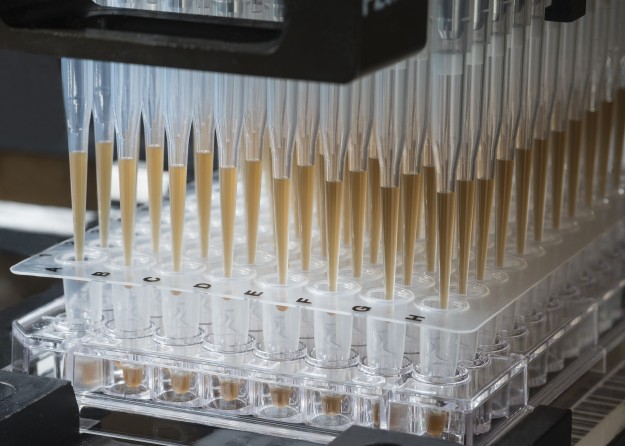The team of cancer genetics experts that deciphered the genetic blueprints of cancer, have developed two new screening tests that have the promise to detect cancer in an early and curable stage.
As the names of the tests indicate PapSEEK and UroSEEK, they seek out and find genetic evidence of cancer by detecting DNA released from cancer cells in fluids obtained during Pap tests and in urine samples. PapSEEK detects endometrial and ovarian cancers, and UroSEEK detects urothelial cancer, cancers that start in the cells that line the bladder, ureters, urethra, and parts of the kidney. The two new tests come on the of heels CancerSEEK, a blood test that can detect eight different cancers—liver, stomach, pancreatic, ovarian, esophageal, colon, lung and breast cancer.
Why so many tests? “We are exploring every possible way to use our genetic discoveries to detect cancers when they are in an early, curable stage. Our previous studies indicated that not all tumor types can be detected in blood, so we are also developing gene-based tests that work using other bodily fluids and secretions,” says Nickolas Papadopoulos, a cancer genetic expert and member of the team that developed all three tests.
They will compare these tests and likely develop others to find cancers earlier when they are most likely to respond well to treatment and have the best chance of being cured.
Currently available cancer screening tests definitely save lives. But they don't detect the vast majority of cancers, and some require procedures or discomfort that deter many people from taking advantage of them. This is why it is critical to develop new, non-invasive tests. “SEEK” tests, once fully developed, could be stand-alone cancer screening tests in some cases and also be used in conjunction with currently available screening tests to confirm findings and eliminate the need for additional invasive procedures. Most importantly, for many cancers, they represent the only means of early detection.
There is still a lot of work to be done to verify that CancerSEEK, PapSEEK, and UroSEEK find cancers as well in large populations as they did in early research. These follow up studies will likely take several years and must be done with very specific and controlled scientific parameters. These studies take time, but they are necessary to get to our ultimate goal of inexpensive and noninvasive cancer gene-based screening tests that can be made available to people everywhere.

How can I take part in CancerSeek?
The CancerSEEK test must first be validated in large scale-screening studies before it can be made commercially available. One study is currently under way, and future studies are anticipated but take time to plan. We will post information to our website about any new studies.
How can 9/11 rescuers and responders be part of this study? Every year many of us undergo invasive testing as part of a yearly examination to see if our 9/11 related conditions have gotten worse. We have lung x-ray and CT scans, endoscopy's, colonoscopies, and more all checking for cancer, the cancers cancerSEEK has been developed to find. A test like this would save many lives. How can we be a part of this?
Thank you Janice and Michael for your questions, and most especially thank you for your service and bravery. I shared your questions with the lead CancerSEEK researcher, and he thinks it is an interesting suggestion that he plans to look into as a potential future research study. I will keep you updated on progress.
This is great news!! Very hopeful. Thank you, Valerie Matthews-Mehl.
Comments are closed.